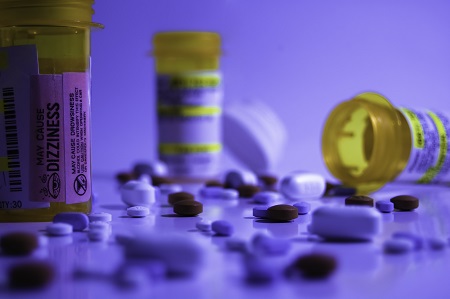Euphoria
You experience euphoria when you begin to display an unusual, heightened or intense excitement, pleasure, happiness or feeling of well-being. This is often described as ‘pleasant excitement’ and an ‘intense sense of ease or well-being’. Euphoria is a momentary experience rather than a permanent one.
Euphoria is always triggered by something in particular and can be considered positive or negative, depending on what initially caused it to be induced.

Causes of Euphoria
Your feeling of euphoria may be as a result of any of the following reasons:
- Disorders: those such as bipolar disorder, schizophrenic disorders, and brain disorder are possible causes of euphoria.
- Success and social activities: success, reward, marriage, and activities like physical exercise, listening to music, dancing and discovery could induce euphoria.
- Sexual satisfaction and love-making generally can induce euphoria.
- Drugs: Dependence on addictive substances like amphetamines, alcohol, tobacco, cocaine and heroin are well-known causes of euphoria.
Of these causes, the first and last are considered negative, as in severe cases, the resulting euphoria could lead to severe depression, relationship issues, poor performance at school or work, and even suicidal ideation.
Call our admissions line 24 hours a day to get help.
The Relationship between Euphoria Drug Abuse and Dependence
Mostly, the feeling you have when you first take any addictive drug is euphoria – that perception of excessive happiness, ease, fulfilment and satisfaction. Euphoria is, therefore, a symptom of drug abuse/intake and usually, the first symptom users will encounter. Once you’ve had this feeling, you will want to experience it again and again. To do so, you’ll subsequently need to take the drug again.

As the desire for this feeling continues to manifest – and as you continue to feed this desire by taking more of the substance in question – you may become dependent and, eventually, addicted. Therefore, the relationship between drug abuse and euphoria is almost bidirectional: drug intake provides euphoria, while euphoria itself causes addiction.
When you become addicted to a drug, other symptoms will follow thereafter. Initially are the symptoms of addiction – of which euphoria is one. Others include anxiety, nausea, vomiting, loss of appetite, inability to sleep, and many more. Withdrawal symptoms soon come to the fore, which are those that arise when you try to stop taking the drugs on the account of the symptoms of addiction.
Signs of Euphoria
Common signs of euphoria include:
- Anxiety
- Mood swing
- Paranoia
- Confusion
- Restlessness
- Disorientation
- Hallucination
Call our admissions line 24 hours a day to get help.

Treatment of Euphoria
There may not be any cause for alarm if euphoria is induced by any of the supposed ‘good causes’, because this will fade at the termination of the event or activity that induced it initially. These include adrenaline rushes during extreme sports or important life events.
However, you should not make light of euphoria caused by either drug abuse or any psychological disorders. In any case, medical attention is required if there is a pathological euphoric condition. It will help put the situation under control and eliminate chances of escalation that may lead to further health problems. To address drug or disorder-induced euphoria, experts usually prescribe different medications or apply certain therapeutic remedies.
Call our admissions line 24 hours a day to get help.

